Discover NVIDIA AI Podcast
NVIDIA AI Podcast

NVIDIA AI Podcast
Author: NVIDIA
Subscribed: 16,270Played: 158,473Subscribe
Share
© All rights reserved e203f610-4315-11f0-9656-27588e6ca9e9
Description
Explore how the latest technologies are shaping our world, from groundbreaking discoveries to transformative sustainability efforts. The NVIDIA AI Podcast shines a light on the stories and solutions behind the most innovative changes, helping to inspire and educate listeners. More information: https://ai-podcast.nvidia.com/
288 Episodes
Reverse
Discover how mixture‑of‑experts (MoE) architecture is enabling smarter AI models without a proportional increase in the required compute and cost. Using vivid analogies and real-world examples, NVIDIA’s Ian Buck breaks down MoE models, their hidden complexities, and why extreme co-design across compute, networking, and software is essential to realizing their full potential. Learn more: https://blogs.nvidia.com/blog/mixture-of-experts-frontier-models/
Empromptu CEO Shanea Leven shares how her company helps people without coding experience build meaningful, production-ready AI applications — fast and accurately. Powered by NVIDIA CUDA, Empromptu’s “AI that builds AI” platform is making cutting-edge technology accessible to all, enabling creators to turn bold ideas into real-world impact.
Listen to the full show archive at ai-podcast.nvidia.com
The year in AI began with agents and brought us creative superpowers, robots on farms and in operating rooms, and so much more. Look back on AI in 2025 through the voices of the people who created it in this recap episode.
Listen to every episode: ai-podcast.nvidia.com
Bringing GPUs to your data is a game changer for the modern enterprise. Jacob Liberman, Director of Enterprise Product Management at NVIDIA, details the AI Data Platform, a GPU-accelerated storage platform built for AI.
Browse the entire AI Podcast catalog: ai-podcast.nvidia.com
Mayor Matt Mahan and NVIDIA’s Jumbi Edulbehram reveal how AI is making San Jose smarter—optimizing transit, translating meetings in real time, upskilling city staff, and powering pioneering civic programs. Learn how AI is helping streamline services and create a more responsive city for everyone.
Browse the entire AI Podcast catalog: ai-podcast.nvidia.com
Coverage from keynote pregame show, GTC Live Washington D.C.
Chapter 5: AI for Robotics and Manufacturing
The boundary between digital intelligence and physical action is disappearing. Industry pioneers show how robotics and automation are turning insight into production.
Catch up with GTC DC on-demand: https://www.nvidia.com/en-us/on-demand/
Coverage from keynote pregame show, GTC Live Washington D.C.
Chapter 4: AI for Science
In laboratories and research centers, AI is becoming a core instrument of discovery. Scientists and technologists explore how computation is accelerating progress across fields.
Catch up with GTC DC on-demand: https://www.nvidia.com/en-us/on-demand/
Coverage from keynote pregame show, GTC Live Washington D.C.
Chapter 3: AI Infrastructure Ecosystem
Behind every breakthrough is an unseen network of data centers, power systems, and partners. Leaders across energy and infrastructure discuss how they’re building the backbone of the AI economy.
Catch up with GTC DC on-demand: https://www.nvidia.com/en-us/on-demand/
Coverage from keynote pregame show, GTC Live Washington D.C.
Chapter 2: Agentic AI for Every Industry
Intelligent systems are beginning to plan, reason, and act, reshaping how industries work. Builders share how these capabilities are moving from research into real-world impact.
Catch up with GTC DC on-demand: https://www.nvidia.com/en-us/on-demand/
Coverage from keynote pregame show, GTC Live Washington D.C.
Chapter 1: State of AI Innovation
A look at how new ideas, models, and open collaboration are shaping the direction of AI. Investors and founders trace where the next wave of durable innovation is coming from.
Catch up with GTC DC on-demand: https://www.nvidia.com/en-us/on-demand/
Dr. Seher Awan, president of Mission College, shares her inspiring journey from first-generation college student to higher education leader in the heart of Silicon Valley. Discover how Mission College is embracing AI to break barriers, close equity gaps, and empower underrepresented communities through accessible education and innovative student support.
Browse the AI Podcast catalog: ai-podcast.nvidia.com
Learn how NVIDIA's Nemotron family of open source models is redefining accelerated computing. NVIDIA’s Bryan Catanzaro and Jonathan Cohen discuss the breakthroughs in efficiency, openness, and collaboration — sharing how Nemotron empowers developers and enterprises to innovate, customize, and trust AI for every industry.
Browse the full AI Podcast archive: ai-podcast.nvidia.com
Learn how agentic AI is transforming pharma. IQVIA’s Raja Shankar and Avinob Roy share how intelligent automation accelerates clinical trials, improves commercial strategy, and powers better patient care — turning healthcare data into outcomes at scale.
Listen to the full archive: ai-podcast.nvidia.com
Shai Shen-Orr, co-founder and chief scientist at CytoReason and professor at the Technion, talks about the next frontier in healthcare: disease modeling. Shai shares how CytoReason bridges the gap between exploding biological data and actionable insight, powering smarter, faster drug development for leading pharma and biotech companies.
Learn more: ai-podcast.nvidia.com
President Cynthia Teniente-Matson discusses how San José State University is equipping both students and faculty to confidently embrace AI and prepare for tomorrow’s workforce. Learn more about SJSU’s hands-on AI integration in courses, AI-driven teaching tools, faculty development programs, innovative collaborations, and real-world projects—all building a more inclusive, future-ready campus.
Check out other stories on nvidia.com/ai-for-good/
Yashraj Narang, head of NVIDIA's Seattle Robotics Lab, reveals how the three computer solution—DGX for training, Omniverse and Cosmos for simulation, and Jetson AGX for real-time inference—is transforming modern robotics. From sim-to-real breakthroughs to humanoid intelligence, discover how NVIDIA's full-stack approach is making robots more adaptive, capable, and ready for real-world deployment.
Learn more at ai-podcast.nvidia.com.
Listen as two leading researchers at the cutting edge of computational biology explore breakthrough GPU accelerations that are changing how we understand life's molecular machinery.
Chris Dallago, Research Lead at NVIDIA and Visiting Professor at Duke University, and Martin Steinegger, Associate Professor at Seoul National University and co-author of the Nobel Prize-winning AlphaFold paper, join the podcast to discuss homology retrieval, protein design, and how MMseqs2-GPU inverted the traditional 80/20 compute bottleneck in protein structure prediction, enabling faster drug discovery and biological research.
Learn more at ai-podcast.nvidia.com.
CEO Anne Osdoit joins the podcast to explore how Moon Surgical’s Maestro platform blends robotics, AI, and human expertise to boost surgeon skills, enhance workflow efficiency, and reduce fatigue. Hear firsthand how patient outcomes improve, hospitals streamline resources, and surgical teams achieve greater confidence and consistency—all with the power of NVIDIA edge computing and AI.
Check out other stories on nvidia.com/ai-for-good/
Derek Slager, co-founder and CTO of Amperity, explores how agentic AI and vibe coding are reshaping enterprise data management and the developer experience on the NVIDIA AI Podcast. Hear how Amperity’s platform unifies customer data, powers advanced analytics, and brings conversational interfaces to every part of the organization—helping brands activate, segment, and leverage insights at scale. Discover why data quality matters more than ever, how agentic AI transforms workflows, and why human accountability stays central in the age of automation.
Learn more at ai-podcast.nvidia.com.
podscan_PWXJwbBueH0iSHIUDliAbnP9LttIH8n9
Paul Mikesell, Founder and CEO of Carbon Robotics, shares how combining artificial intelligence and lasers is transforming modern agriculture. From identifying and eliminating billions of weeds without chemicals to boosting crop yields and reducing operational costs, AI-driven robots are helping farmers operate more efficiently and sustainably. Discover how AI-powered farm machinery is reshaping weed control, empowering growers, and paving the way for cleaner, future-focused food production. Check out other stories on nvidia.com/ai-for-good/




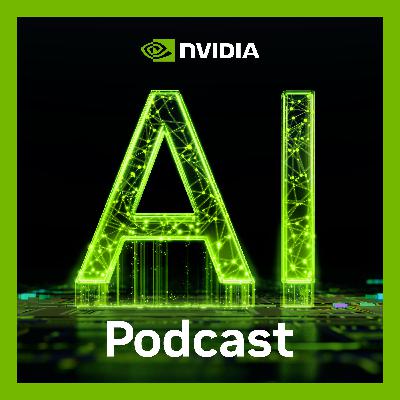

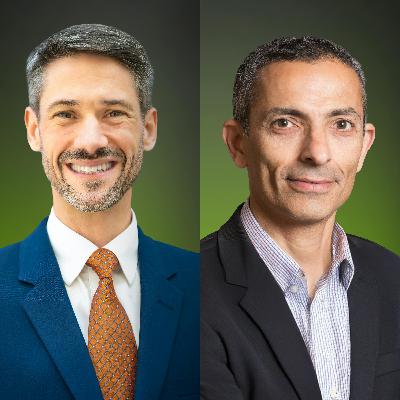
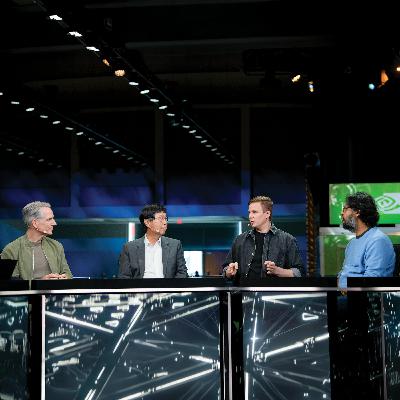
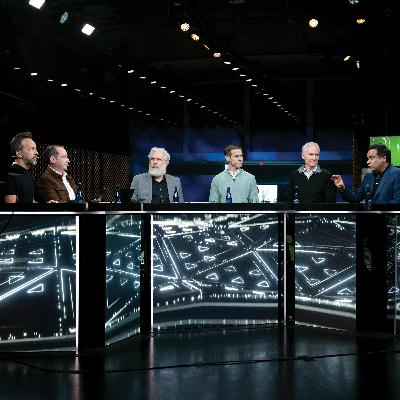

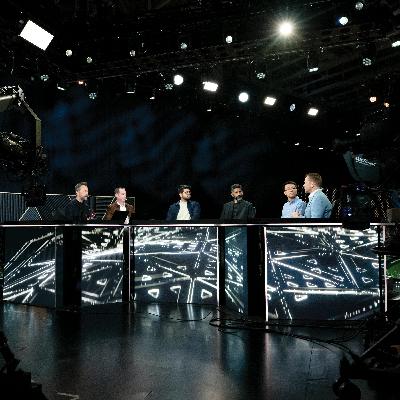
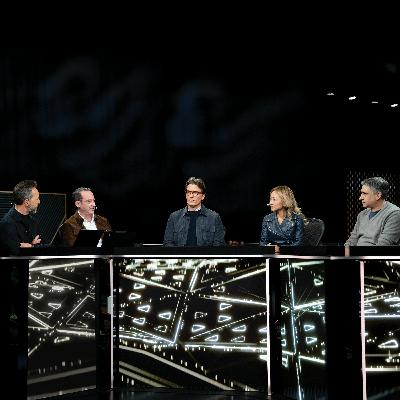

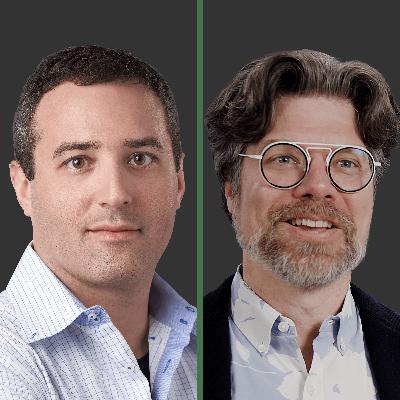




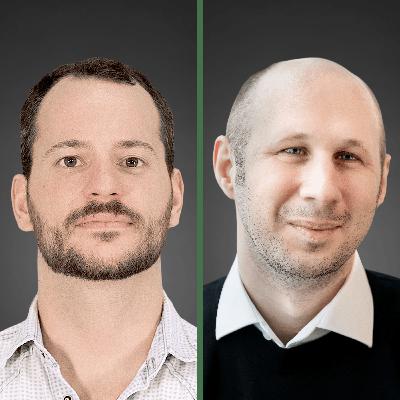

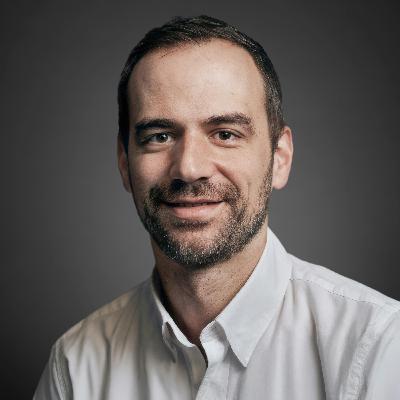




If you’re looking for relationship counselling in CDA, professional support can help you and your partner rebuild trust, improve communication, and strengthen emotional connection. Relationship counselling in Coeur d’Alene (CDA) provides couples with a safe, guided space to address conflicts, resolve misunderstandings, and work through challenges with expert guidance. https://lovefactor.com/
Fascinating episode — it's impressive how AI is transforming payment security. It actually word NPC clearance rtc clearance pNp https://policeclearancephilippines.com/
AWESOME STUFF ! ! !
Fascinating episode — it's impressive how AI is transforming payment security. It actually reminded me how much smarter the travel process is getting too. For anyone planning a trip to Qatar, https://visacheckqatar.com is a quick tool I’ve used to check visa status — super helpful alongside all these digital innovations.
HappyLoop is an innovative AI-powered data analysis tool designed to revolutionize how SaaS companies harness the power of data. By seamlessly integrating into SaaS platforms, HappyLoop empowers businesses to make smarter decisions, improve user engagement, and deliver personalized experiences. With its advanced features, HappyLoop automates complex data processes, transforming raw data into actionable insights. It enables businesses to uncover trends, predict user behavior, and optimize their services for maximum customer satisfaction. https://www.happyloop.com/blog/data-analysis-techniques
$100 Registration Bonus Eksklusibo sa jet!
Maging Miyembro ng daddy at Makatanggap ng $100 Agad!
Magsimula sa fresh: Makakuha ng $100 Welcome Bonus!
Magsimula sa fresh: Makakuha ng $100 Welcome Bonus!
sherbet Registration Bonus: Libreng $100 Para sa Mga Bagong User!
Magparehistro sa supernova at Makakuha ng $100 Bonus Kaagad!
Magparehistro sa supernova at Makakuha ng $100 Bonus Kaagad!
Sumali sa jazz Ngayon at Kumuha ng $100 Welcome Bonus!
Sumali sa jazz Ngayon at Kumuha ng $100 Welcome Bonus!
Simulan ang Iyong Paglalaro sa 500 casino na may Libreng $100 Bonus!
$100 Bonus Agad Para sa Mga Bagong User ng highway!
Bagong User? Sumali sa sol at Makatanggap ng $100 Bonus!
Makakuha ng $100 Bonus Kapag Nagparehistro sa exclusive Ngayon!
Para sacar na token casino - https://casinoonline-br.com/token-casino/, você precisa fornecer dados bancários e uma foto de um documento de identidade para validação. O processo de saque é rápido e seguro, e a plataforma garante que todas as suas transações financeiras sejam protegidas por tecnologia de criptografia.
Ao solicitar um saque na 777luc bet - https://casinoonline-br.com/777luc-bet/, você precisará enviar dados bancários, além de uma cópia do seu documento de identidade. A plataforma é altamente segura e garante que todos os fundos sejam protegidos, utilizando criptografia para prevenir qualquer tipo de fraude ou roubo de dados.